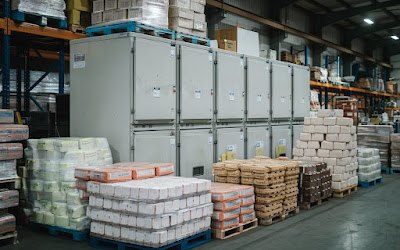Refrigeration is a sector that is constantly evolving, driven by the search for energy efficiency, sustainability and automation. Large companies, which depend on air conditioning and refrigeration systems for their operations, are adopting new technologies to reduce costs and optimize equipment performance. Check out the five main trends that are shaping the future of corporate refrigeration below.
1. Use of Eco-Friendly Refrigerant Gases
Concern for the environment has led companies to replace traditional refrigerant gases with more sustainable options. Substances such as R-32 and CO₂ are alternatives that reduce environmental impact and meet international regulations on emissions. In addition, the new gases offer greater thermal efficiency, contributing to lower energy consumption.
2. Automation and Intelligent Monitoring
Automation is revolutionizing refrigeration systems, allowing for more precise control of temperature and equipment performance. Sensors and management software monitor the functioning of systems in real time, sending alerts about possible failures and ensuring automatic adjustments to optimize energy consumption. This technology is essential to avoid waste and reduce operating costs.
3. Energy Efficiency and Sustainability
The search for energy efficiency has led companies to invest in more modern equipment, which consumes less electricity without compromising performance. Technologies such as inverter compressors, internal LED lighting in cold rooms and more efficient heat exchangers are among the solutions adopted to minimize environmental impact and energy costs.
4. Refrigeration with Renewable Energy
The integration of refrigeration systems with renewable energy sources, such as solar and wind, has become a strong trend among large companies. This solution reduces dependence on the traditional electricity grid and cuts operating costs. In addition, smart batteries store energy to keep refrigeration running even during times of low energy generation.
5. Predictive and Intelligent Maintenance
Predictive maintenance technology uses sensors and artificial intelligence to predict failures before they occur. This prevents unexpected downtime and reduces the costs of emergency repairs. Large companies are already implementing this approach to ensure the longevity of equipment and minimize losses resulting from unexpected failures in refrigeration systems.
Conclusion
Refrigeration for large companies is undergoing a significant transformation, driven by automation, sustainability and energy efficiency. Investing in these trends not only reduces operating costs, but also ensures greater system reliability and contributes to a more sustainable future.
